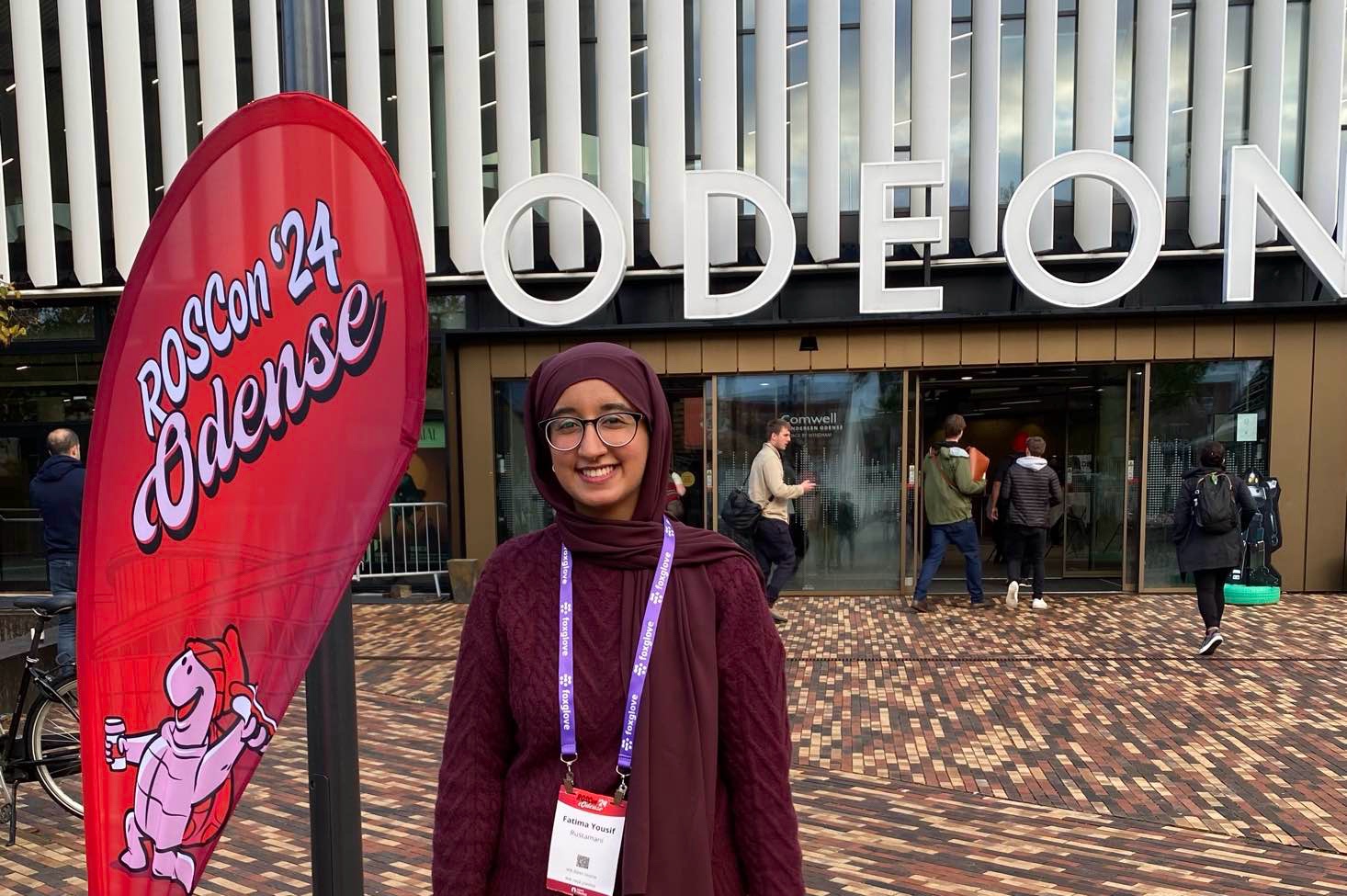How a Pakistani Student Secured the Fully Funded Erasmus Mundus Scholarship to Study Intelligent Field Robotic Systems Across Europe
Universities: Spain (Universitat de Girona), Croatia (University of Zagreb), and Hungary (Eötvös Loránd University)
Program: Erasmus Mundus Joint Master’s in Intelligent Field Robotic Systems (IFRoS)
Degree: Master’s in Robotics
Previous Education: 10th Grade: Pakistan International School Riyadh, Saudi Arabia; 12th Grade: Superior College of Science, Pakistan; Bachelor’s in Software Engineering – Mehran University of Engineering and Technology, Pakistan (Silver Medalist)
Scholarship: Erasmus Mundus Joint Master’s Scholarship – Fully funded
Other Scholarships (Applied): Chevening, Fulbright, Commonwealth
Social Media:
LinkedIn: linkedin.com/in/fatima-yousif/

The Journey
I am Fatima Yousif from Pakistan and currently an Erasmus Mundus Joint Master’s (EMJM) recipient for the Intelligent Field Robotic Systems (IFRoS) program, pursuing my Master's thesis at Saxion Smart Mechatronics and Robotics research lab. As part of this program, I studied in Spain and Croatia as my two host countries.
What Was Your Academic Background Before Joining the Erasmus Mundus Program, and How Did It Prepare You for the Multi-Country Experience?
I completed my 10th grade at Pakistan International School Riyadh, Saudi Arabia, followed by my 12th grade (in Pre-Engineering) at Superior College of Science, Pakistan. I then pursued a Bachelor’s in Software Engineering at Mehran University of Engineering and Technology, Pakistan. Throughout my academic journey, I have been a high achiever, especially earning a silver medal in my undergraduate studies. My experience studying in both in-house education systems and international schools helped prepare me for the multi-country experience that Erasmus Mundus provided.
How Did You Prepare to Apply to the Institution? How Did You Prepare to Apply for the Scholarship?
Before selecting Erasmus Mundus, I also applied for the Chevening, Fulbright, and Commonwealth Scholarships. I chose Erasmus Mundus because of its multi-country experience, exposure to the EU education system, joint master’s degree, and rich academic and cultural exchange. The selection process was highly competitive, as for my program, only two students (including myself) were selected from a pool of many applicants. I believe my application stood out due to having relevant programming experience needed for this degree, strong academic achievements, and extracurricular involvement in globally leading organizations like Google Developer Student Clubs and TEDx communities.
Could You Briefly Discuss the Erasmus Mundus Program You Pursued and Its Specific Field of Study?
The Intelligent Field Robotic Systems (IFRoS) program is a two-year Erasmus Mundus Joint Master’s degree coordinated by Universitat de Girona (UdG, Spain), with the University of Zagreb (UNIZG, Croatia) and Eötvös Loránd University (ELTE, Hungary) as partner institutions.
The program aims to train a new generation of engineers specializing in Field Robotics. The curriculum covers key research areas such as artificial intelligence, computer vision, control systems, sensorization, machine learning, and robotic manipulation—all rapidly evolving in today’s digital revolution.
How Did the Cost of Living Vary Across the Countries You Studied In? Which Country Was the Most Affordable or Expensive, and How Did You Manage Financially?
● Spain: More affordable with respect to transportation, groceries, and rent.
○ Focus areas of study: Ground robots, underwater robots, programming fundamentals in robotics, and hands-on projects with Turtlebot visual perception, planning, localization, and manipulation.
● Croatia: Relatively expensive, mainly due to groceries, rent, and transportation.
○ Focus areas of study: Aerial vehicles/drones, multi-robot systems, hands-on experience with real Crazyflie drones, and deep learning.
Did You Face Any Language Barriers, and if So, How Did You Overcome Them? Did the Language of Instruction Change From One Country to Another?
Yes, in some places, language barriers were one of the challenges. To overcome it, I managed by learning basic daily-use phrases via Duolingo, using Google Translate, and mixing English with the local languages. However, most of the locals were able to communicate in English.
No, the language of instruction for both Spain and Croatia did not change, and both were in English.
Would You Recommend the Erasmus Mundus Program to Others? What Advice Would You Give to Someone Considering This Scholarship?
Absolutely! I highly recommend the Erasmus Mundus program.
Advice for applicants:
● Prepare your application documents thoroughly so they can be used for multiple Erasmus Mundus programs related to your field of interest.
● Apply to as many programs as possible—there are no restrictions in Erasmus Mundus.
● Showcase the best version of yourself in your application.
● Highlight every relevant contribution related to your field to ensure it is recognized by the selection committee.
● Take the leap! You never know until you apply. Best of luck!
Looking Back, Would You Have Done Anything Differently During Your Time in the Program?
Looking back, I am satisfied with my experience in the program and would not change anything. It provided me with valuable academic, cultural, and professional growth.
Want to submit your
scholarship journey?
Submit Your Story Here!
More Scholarship Recipients

My name is Zara Qaiser. I’m originally from Singapore and Pakistan (yes, both!), and I am now pursuing a PhD in Public Pol .... Read more
- American University
- Columbian College of Arts & Sciences Doctoral Fellowship
- Economics
- Fully Funded Scholarships
- Graduate Assistantships
- Graduate Merit Award (American University)
- Pakistani Nationality
- Ph.D. Scholarships
- Public Administration
- Public Policy
- Singaporean Nationality
- The George Washington University
- United States
- University of Massachusetts Boston

Hello! My name is Sakshi Barhai, and I am from Pithora, a small town in the state of Chhattisgarh, India. After clearing the .... Read more

My academic journey toward biomedical science has been shaped by both curiosity and reality. Growing up in Pakistan, I obser .... Read more

Leave A Comment